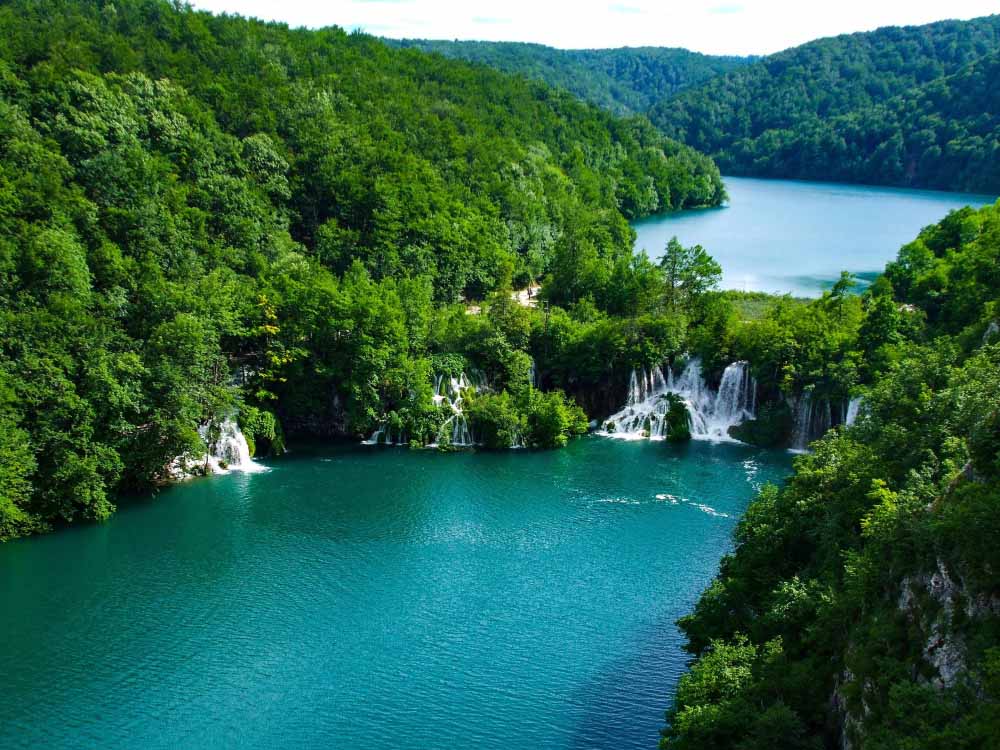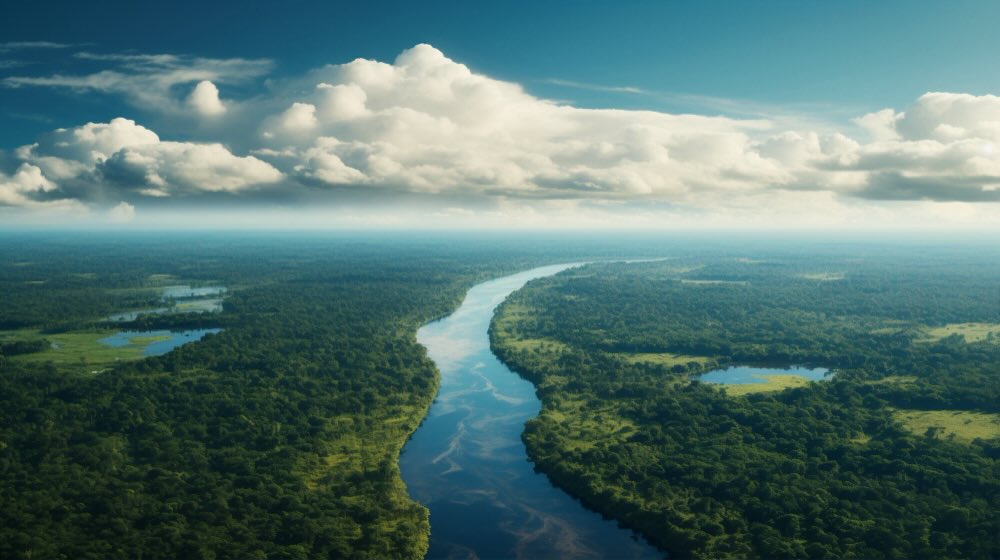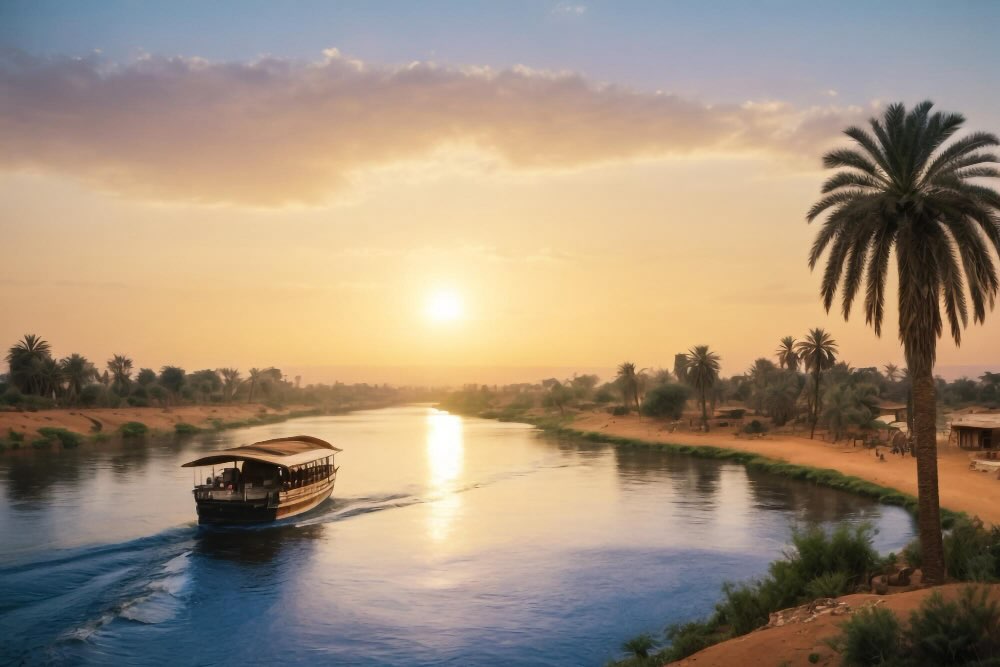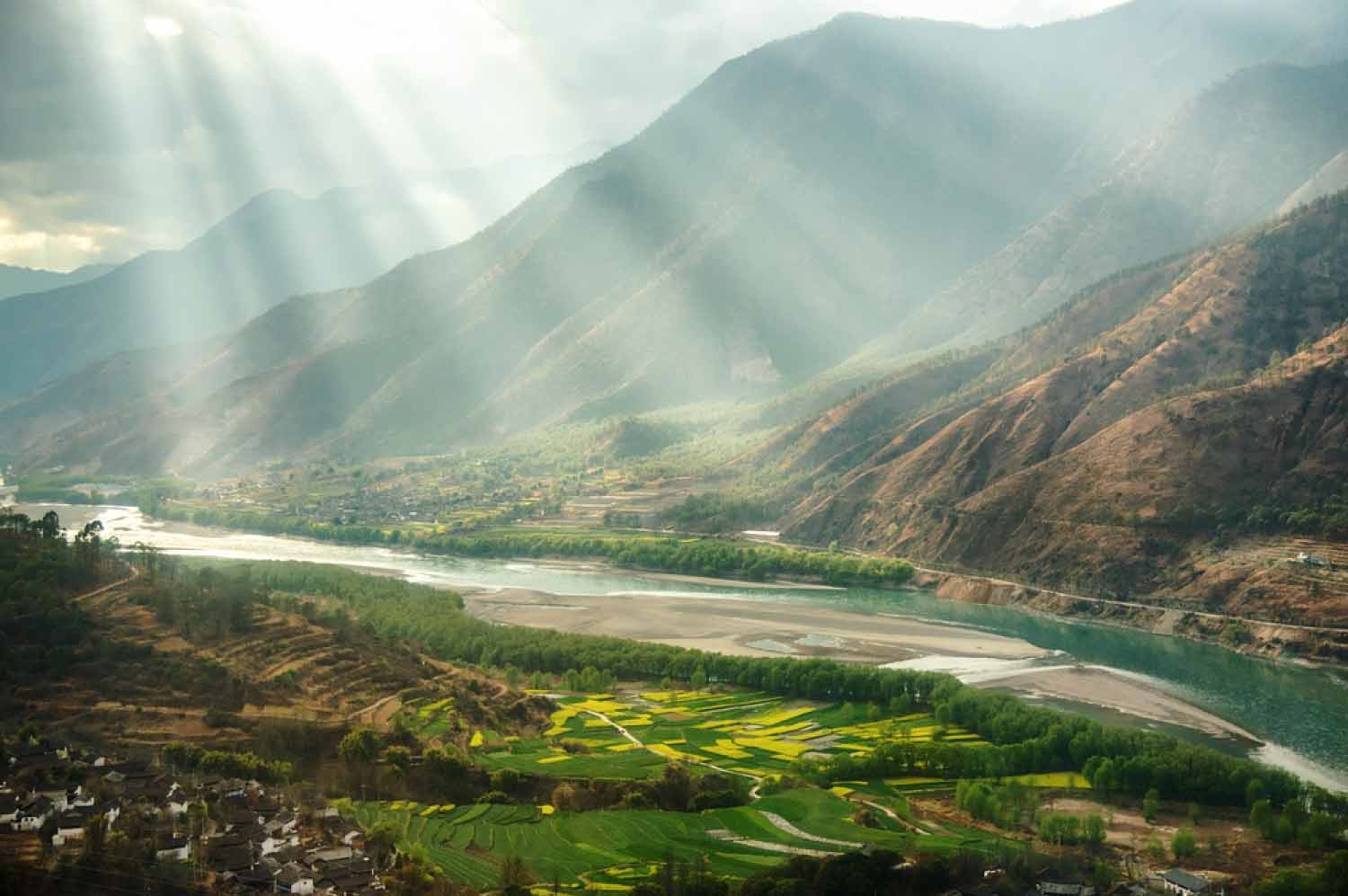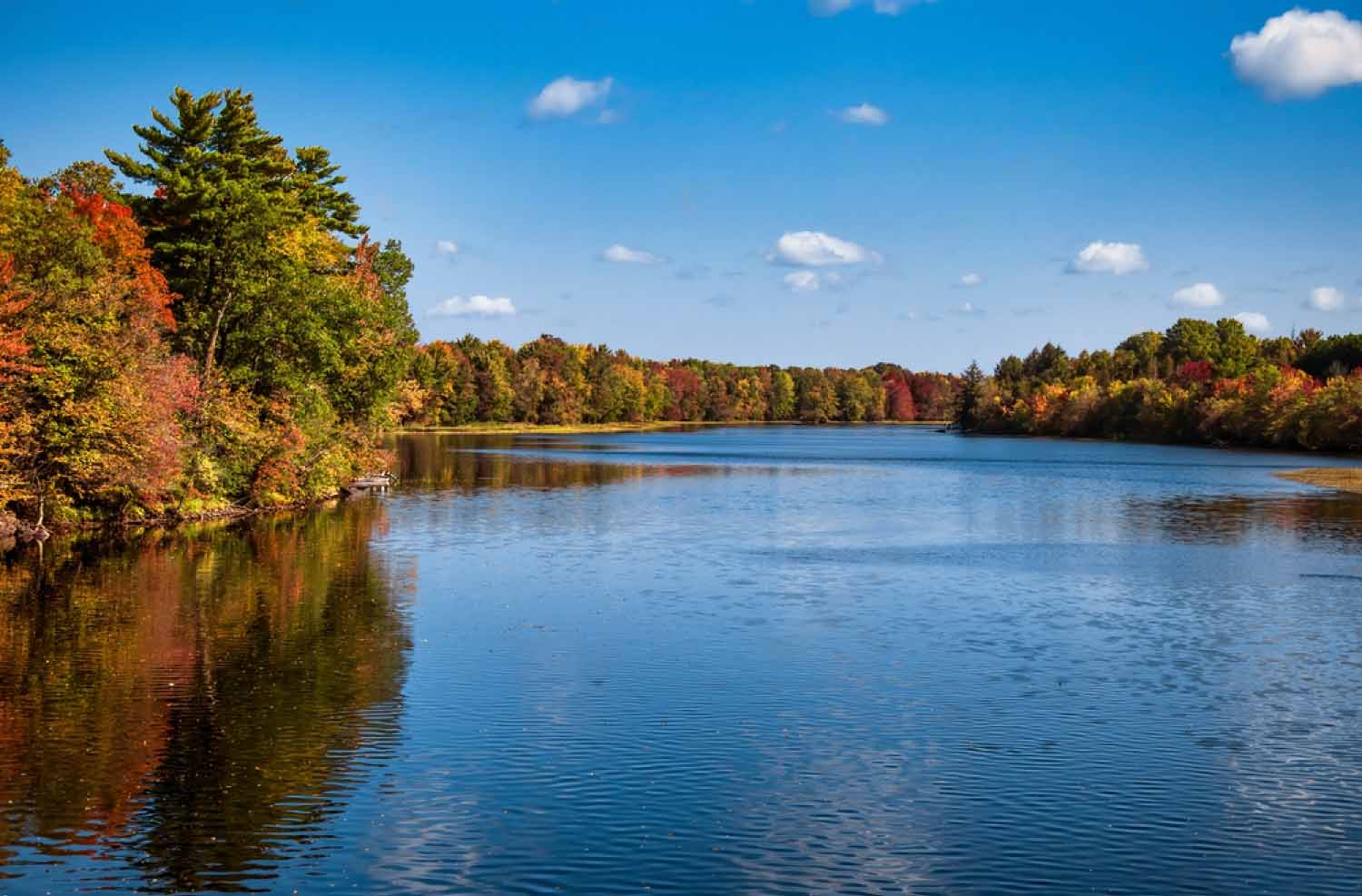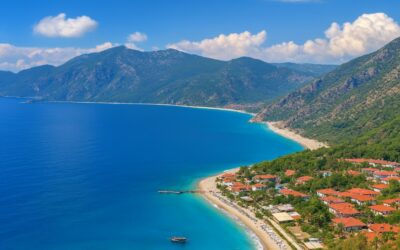There are 165 rivers in the world that are over 1,000 kilometers long, most of which are located in the continent of Asia. These gushing rivers are not just flows of water—they are also part of our natural and cultural heritage. Each of these long rivers serves as a lifeline in its own right, hosting some of the planet’s most diverse and rich ecosystems. Among them are rivers that nourish life across the globe, have witnessed the birth of civilizations, and have been centers of trade and cultural exchange throughout history. The title of the world’s largest river is determined not only by its length but also by the vastness of its drainage area and the history carried by its waters.
We’re about to embark on a journey through the world’s longest rivers—rivers that dazzle with their length, shape continents, guide civilizations, and form a bridge between nature and humanity.
Amazon River (Brazil, South America)
The Amazon River is considered one of the longest rivers in the world, stretching a total of 6,992 kilometers. It originates in the Andes Mountains and flows through Peru before reaching Brazil, ultimately emptying into the Atlantic Ocean. It merges with tributaries such as the Ene, Ucayali, and Marañón Rivers, creating the beautiful scenery of the city of Manaus where they join.
Nile River (Egypt, Northeastern Africa)
The Nile River is considered a significant waterway in Egypt and Northeastern Africa. With an impressive length of 6,853 kilometers, the Nile originates from Tanzania, Uganda, and Kenya, flowing northward from Lake Victoria. It continues toward the Mediterranean Sea after the confluence of two major tributaries known as the Blue Nile and White Nile in Khartoum.
The Nile also receives water from a river that originates from the Kagera River and flows through Burundi. This river plays a vital role in the region’s ecosystem and provides a habitat for various species. Moreover, the Nile holds great historical and cultural value.
The Nile’s journey from Khartoum to the Mediterranean has played a major role in human life for centuries. It has enabled the development of agriculture and provided essential support in terms of water resources for the region. The impressive length and flow of the Nile make it a crucial factor in shaping life throughout the area.
The Yangtze River, one of the longest rivers in the world, originates in the land where the sun rises over China and flows all the way to the East China Sea, covering an area of 6,300 kilometers. The river is home to rare and delicate species such as the Chinese alligator, Chinese paddlefish, and river dolphins. For centuries, this magnificent river has played a vital role in Chinese culture and has been an essential resource for the surrounding ecosystem.
Over the years, traditional Chinese boats and ships have sailed the Yangtze River, reflecting the lifestyle and economic activities of the region. More than just a waterway, the Yangtze is a symbol of China’s heritage and a vital natural asset that must be protected. Preserving and sustainably managing the Yangtze River and its ecosystems is of great importance for future generations.
Mississippi River (United States of America, North America)
Mississippi is a state located in the southeastern region of the United States. The Mississippi River, named by Native Americans, is fed by the Missouri and Jefferson Rivers—making up part of one of the largest river systems in the world. Ranking fourth in length, the Mississippi River spans an area of 6,275 kilometers. Throughout its history, it has witnessed many wars, as well as beautiful and memorable events. Full of legends and ghost stories, the Mississippi offers visitors an unforgettable experience through river tours in Tupelo, the hometown of Elvis Presley.
The river stretches from Canada down to New Orleans. It has played a major role in American history and served as the site of many important battlefields. Mississippi is widely known as an attractive destination for tourists.
Yenisei River (Angara, Selenge River – Russia, Mongolia)
The Yenisei River is a river system that originates in the mountains of Mongolia and expands with the contributions of the Angara and Selenge tributaries. As one of Siberia’s largest rivers, it exceeds a length of 5,530 kilometers. Ranking fifth among the world’s longest rivers, the Yenisei flows into the Arctic Ocean, emptying into the Kara Sea on the side of the Northern Ice Sea, irrigating a vast area and playing a significant ecological role.
Moreover, the waters of the Yenisei River also help supply water to Moscow, one of Russia’s largest cities.
List of the Longest Rivers in the World
| River | Length | Country/Region | |
| Amazon River | 6,992 km | Brazil | |
| Nile River | 6,853 km | Egypt | |
| Yangtze | 6,300 km | China | |
| Mississippi | 6,275 km | United States | |
| Yenisei–Angara–Selenge River | 5539 km | Russia – Mongolia | |
| Yellow River | 5464 km | China | |
| Ob-Irthysh | 5410 km | Russia – Kazakhstan – Mongolia – China | |
| Parana-Rio de la Plata | 4880 km | Brazil – Argentina – Paraguay – Bolivia – Uruguay | |
| Congo-Chambeshi | 4700 km | Democratic Republic of the Congo | |
| Amur-Argun | 4444 km | Russia – China – Mongolia | |
| Lena | 4400 km | Russia | |
| Mekong | 4350 km | China – Myanmar – Laos – Thailand – Cambodia – Vietnam | |
| Mackenzie-Slave-Peace-Finlay | 4241 km | Canada | |
| Niger | 4200 km | Nigeria |

